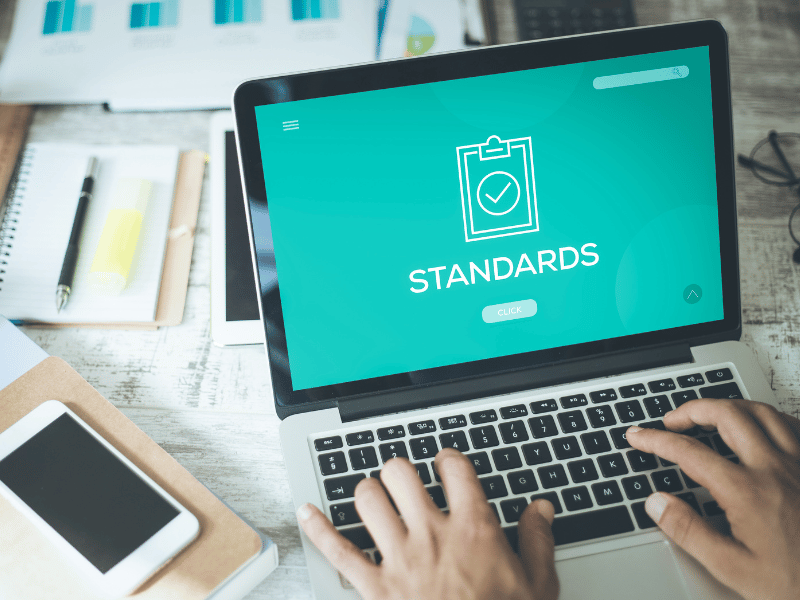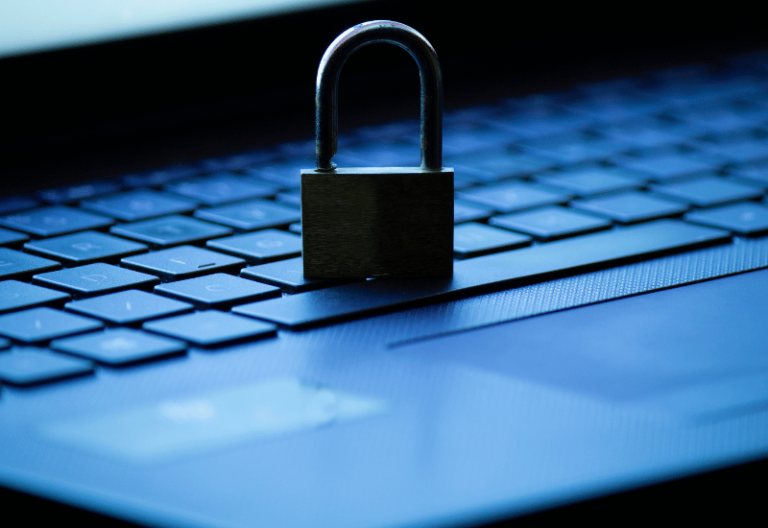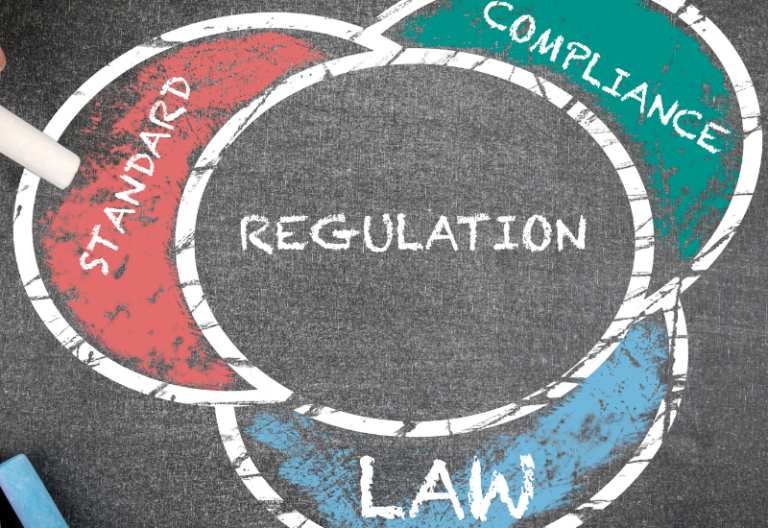Organizations worldwide face increasing information security threats. To respond to these threats and protect sensitive information, many obtain certification for the ISO 27000 series of standards. These standards help manage your organization’s information security management system effectively.
Here’s an in-depth and simple guide to understanding ISO 27000 standards.
Table of Contents
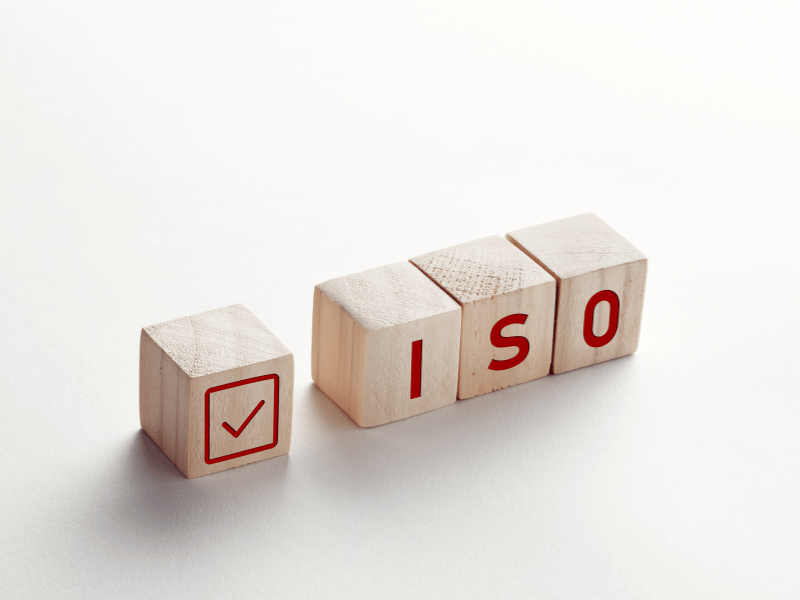
What Is ISO 27000?
The ISO 27000 series of standards was developed by the International Organization for Standardization and the International Electrotechnical Communication (IEC) to assist organizations in managing information security risks. These standards provide best practices and guidelines for implementing and improving your company’s Information Security Management System or ISMS.
Created by a team of experts, the ISO 27000 standards list is a helpful gauge for effective data security recognized worldwide. Business partners and customers usually check if a company or organization has obtained this certification before giving their data. If your business offers financial services, healthcare, government services, and other services that collect or handle data, it would be worthwhile to seek ISO 27000 compliance.

What Are the Purposes of the Standards of ISO 27000 Series?
ISO 27000 has various objectives that will surely benefit your company:
Protect data
ISO 27000 aims to protect your data’s confidentiality, integrity, and availability. It provides controls that ensure sensitive information can only be accessed by authorized users. For example, ISO 27000 standards guide companies when applying access controls such as user authentication and strong passwords.
Manage data security risks
ISO 27000 helps your company identify and avoid information security risks. It provides the standards for risk assessment and treatment, such as identifying potential threats, evaluating the impact of identified risks, and developing a risk management plan.
Comply with regulations
ISO 27000 series of standards helps organizations comply with legal and regulatory requirements connected to information security. For instance, an e-commerce company that wants to comply with the strict General Data Protection Regulation (GDPR) may obtain ISO 27000 certification as evidence that it applies strong data protection measures.
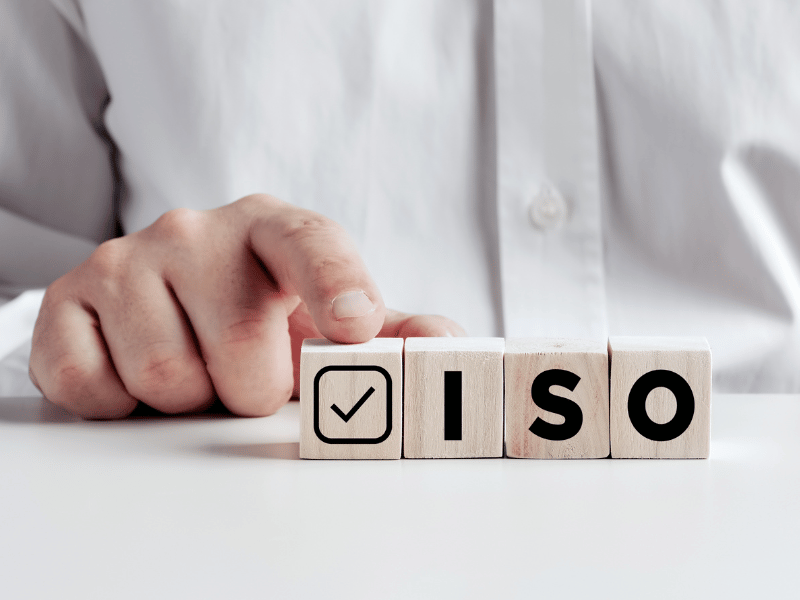
Core Components of the ISO 27000 Series
The ISO 27000 family includes multiple standards, each focusing on different aspects of information security. Some of these standards may not apply to your company. However, you should be familiar with its core components. Here’s a simple explanation of each:
ISO/IEC 27000:2018
This standard applies to all organizations regardless of type or size (commercial, government, and nonprofit). It gives an overview of ISMS and includes commonly used terms and definitions within the ISO 27000 series of standards.
ISO/IEC 27001:2022
ISO 27001 certification is the world’s most recognized standard for ISMS. It provides the guidelines for ISMS for organizations of any size and industry. Compliance with ISMS signifies that your organization has successfully implemented a system to manage data security risks and follows best practices and principles in the standard.
ISO/IEC 27002:2022
This international standard guides your organization in establishing, applying, and improving ISMS cybersecurity so you can protect your data against cyber threats. ISO/IEC 27001 gives the requirements for ISMS while ISO/IEC 2002 provides the best practices and control objectives connected to cybersecurity such as cryptography, human resource security, access control, and incident response.
ISO/IEC 27005:2022
This standard helps organizations fulfill ISO/IEC 27001 requirements related to information security risks. It provides information security risk management guidelines, particularly risk assessment and treatment. Like the other ISO 27000 series of standards, this guidance applies to organizations of all types, sizes, and sectors.
ISO/IEC 27017:2015
If your company is a cloud service provider, this standard is for you. ISO/IEC 27017 offers additional guidance for cloud services on applying the best security controls in cloud environments. It addresses security risks that cloud providers usually face.
ISO/IEC 27018:2019
This standard outlines the widely accepted control objectives, controls, and guidelines for protecting Personally Identifiable Information, or PII, in public cloud computing environments. It is aligned with the privacy principles of ISO/IEC 29100.
ISO/IEC 27701:2019
This standard extends ISO/IEC 27001 and ISO/IEC 27002 to include privacy management. It provides a framework for maintaining and improving your organization’s Privacy Information Management System, helping you process PII securely.
ISO/IEC 27031:2011
This standard will soon be replaced by ISO/IEC FDIS 27031. It provides guidelines for business continuity in the context of information and communication technology (ICT). It requires your company to prepare your ICT services and infrastructures in case of unexpected incidents that could disrupt critical business operations.
ISO/IEC 27033:2013
This standard provides guidelines for network security using Virtual Private Network connections. It helps you select, apply, and monitor the technical controls to maintain security in interconnected networks and connected remote users.
ISO/IEC 27035-1:2023
This standard is the foundation of the ISO/IEC 27035 series. It provides the basic concepts, principles, processes, and critical activities for information security incident management in your company.
ISO/IEC 27035-2:2023
This guidance helps your company plan and prepare for incident response, including learning from security incidents. They are based on the “plan and prepare” and “learn lessons” phases from the information security incident management model in ISO/IEC 27035-1:2023.
ISO/IEC 27035-3:2020
This standard provides guidelines for your company to respond to information security incidents in ICT security operations. It addresses the operational aspects from the perspectives of people, processes, and technology. It focuses on incident response, covering detection, reporting, triage, analysis, response, containment, eradication, recovery, and conclusion. It doesn’t cover non-ICT incident responses, such as loss of paper documents.



